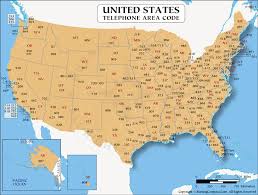Understanding the Importance of US States

Introduction
The United States of America is a vast nation comprising 50 individual states, each with its own unique characteristics, cultures, and contributions to the overall identity of the country. Understanding these states is crucial as they play an integral role in the political, economic, and social fabric of the nation.
Geographical Diversity
The geographical diversity of US states ranges from the beaches of Florida to the mountains of Colorado. Each state has its own set of landscapes, climates, and natural resources. For instance, states like California are known for their agricultural production, while Alaska is famed for its natural scenery and wildlife. This diversity not only attracts tourists but also influences the economy of each state profoundly.
Cultural Significance
Culturally, each state embodies different traditions, histories, and demographics. From the jazz-filled streets of New Orleans in Louisiana to the tech hubs of Silicon Valley in California, states contribute vibrantly to the nation’s culture. The melting pot nature of the US is visible in states like New York, where a blend of cultures creates a rich social tapestry.
Economic Impact
Economically, states vary dramatically with their industries. Texas, for instance, leads in energy production, while Washington State is known for its technology giants like Amazon and Microsoft. As of 2022, the Gross State Product (GSP) of California alone was estimated to be over $3 trillion, making it one of the largest economies in the world. Each state’s economic health is vital not only to the region it represents but also to the overall economy of the United States.
Political Landscape
The political significance of US states cannot be overlooked, particularly with regard to elections. Each state has varying levels of influence on the presidential election process, largely based on population size. For instance, California has a considerably higher number of electoral votes than Wyoming, impacting candidates’ strategies during campaigns. Additionally, state governments play a crucial role in implementing national policies at the local level.
Conclusion
In conclusion, the individual characteristics of US states contribute significantly to the nation’s identity. The interplay of their geographical diversity, cultural richness, economic strengths, and political importance creates a robust and dynamic society. As the United States continues to evolve, the role of states will remain at the forefront, shaping both local and national outcomes in various aspects of life.








